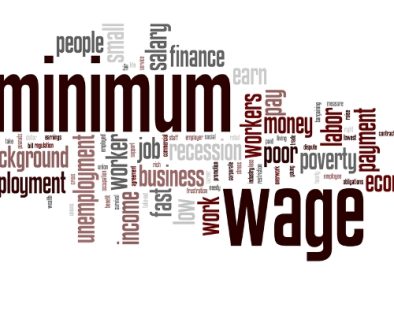Superannuation payment rules for employers
Superannuation payment rules for employers explains the requirement for you to pay Superannuation benefits to your employees and the rules around the payments.
Do I need to pay superannuation?
Generally, an employer must pay super for an employee if:
- The employee is 18 years or over, and
- You pay them $450 or more (before tax) in regular income per calendar month.
OR
- The employee is less than 18 years of age, and
- They work more than 30 hours per week.
The Superannuation Guarantee (SG) must be paid regardless of whether the employee is full time, part time or casual, an Australian resident or here on a work visa.
Contractors who earn most of their income by providing a service to your business, might also be eligible for super contributions from you. If they are paid entirely or principally by you for their personal labour and skills, they perform the contract work personally or they’re paid for the hours worked rather than to achieve a result, then they’re considered an employee for super purposes and, as such, entitled to super guarantee contributions under the same rules as employees.
Superannuation payment rules for employers – Superannuation guarantee payment dates
| Quarter | Superannuation contributions due date | Super guarantee charge due date |
|---|---|---|
| 1 July – 30 September | 28 October | 28 November |
| 1 October – 31 December | 28 January | 28 February |
| 1 January – 31 March | 28 April | 28 May |
| 1 April – 30 June | 28 July | 28 August |
What does ‘Ordinary Time Earnings’ mean?
The super contribution payment is based on an employee’s ordinary time earnings which is usually the amount an employee earns from their ordinary hours of work. It includes:
- Commissions
- Certain allowances
- Paid leave
- Shift loadings
It does not include:
- Irregular overtime payments
- Performance based bonuses
- Termination payments
- Fully expended expense allowances, such as car allowances
- Reimbursed expenses
- Benefits subject to fringe benefits tax
- Jury top-up payments
- Parental leave payments
- Annual leave loading
- Accrued annual leave, long service leave and sick leave paid as a termination lump sum
- Redundancy payments
- Gratuities
- Dividends
- Partnership and trust distributions
- Restraint of trade agreement payments
- Payments for domestic or private work under 30 hours a week
Are there exceptions?
The maximum super guarantee amount an employer is required to contribute is the equivalent of 9.5% of $57,090 per quarter (equivalent to $228,360 for the year), which works out to be a contribution of $5,423.55 per quarter.
Are there other types of superannuation payments?
Generally there are two types of payments:
- Compulsory Super Guarantee contributions
The mandatory contribution you make to your employees’ superfunds set as a percentage of their regular wage. - Reportable superannuation contributions
In most cases, the extra voluntary payments made at the request of an employee out of their wage. The most common of these is salary sacrificing.
For further information on the Superannuation payment rules for employers, you can visit the ATO here
Our team at Gerard Wilkes & Associates are here to help. If you have any questions regarding this article, or would like to discuss your taxation matters further, please contact us at https://www.wilkes.com.au/contact-us/ or call our office 07 5532 1733.




